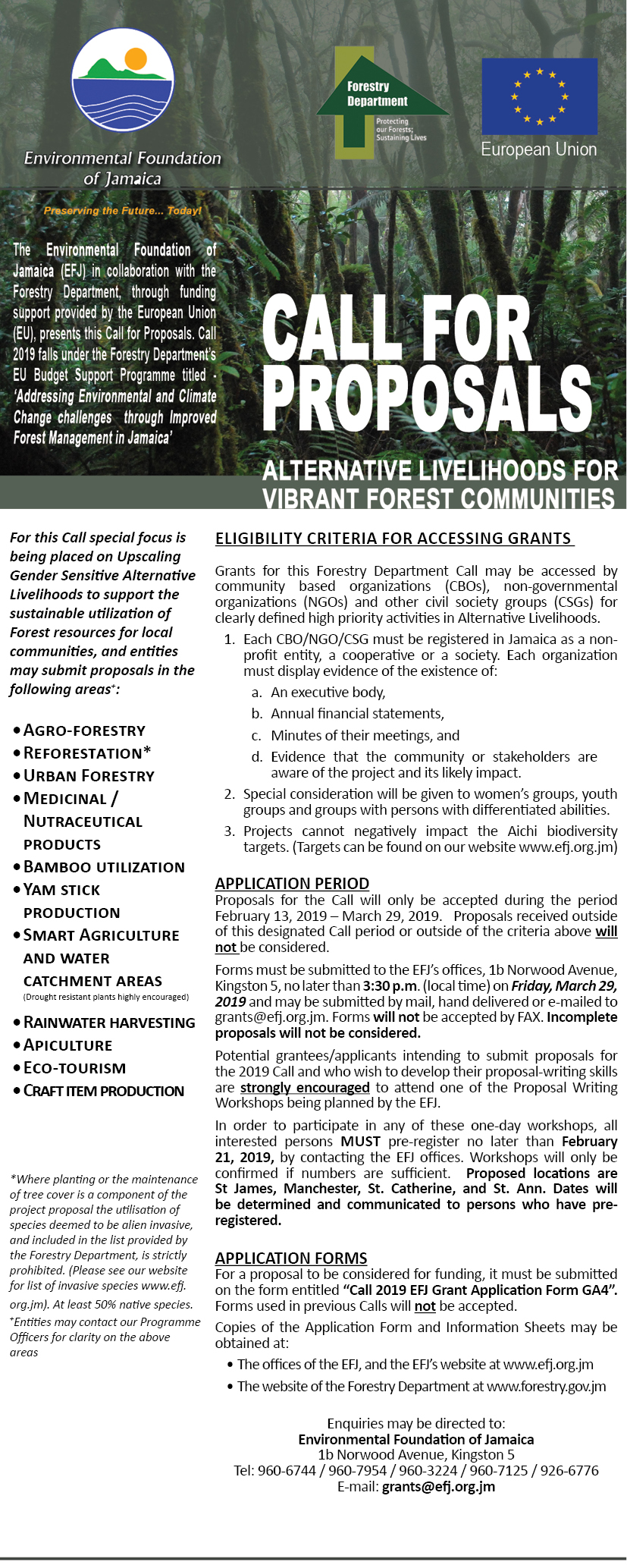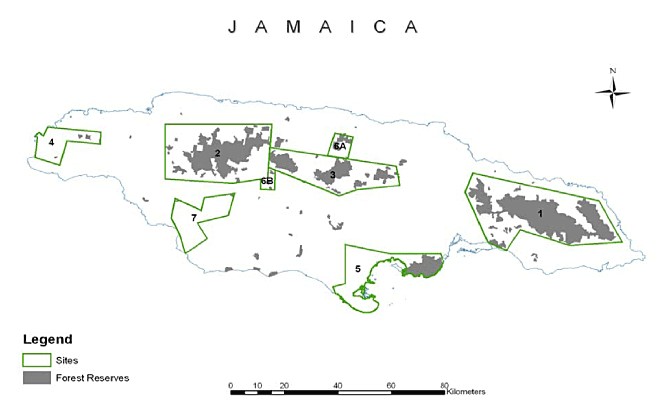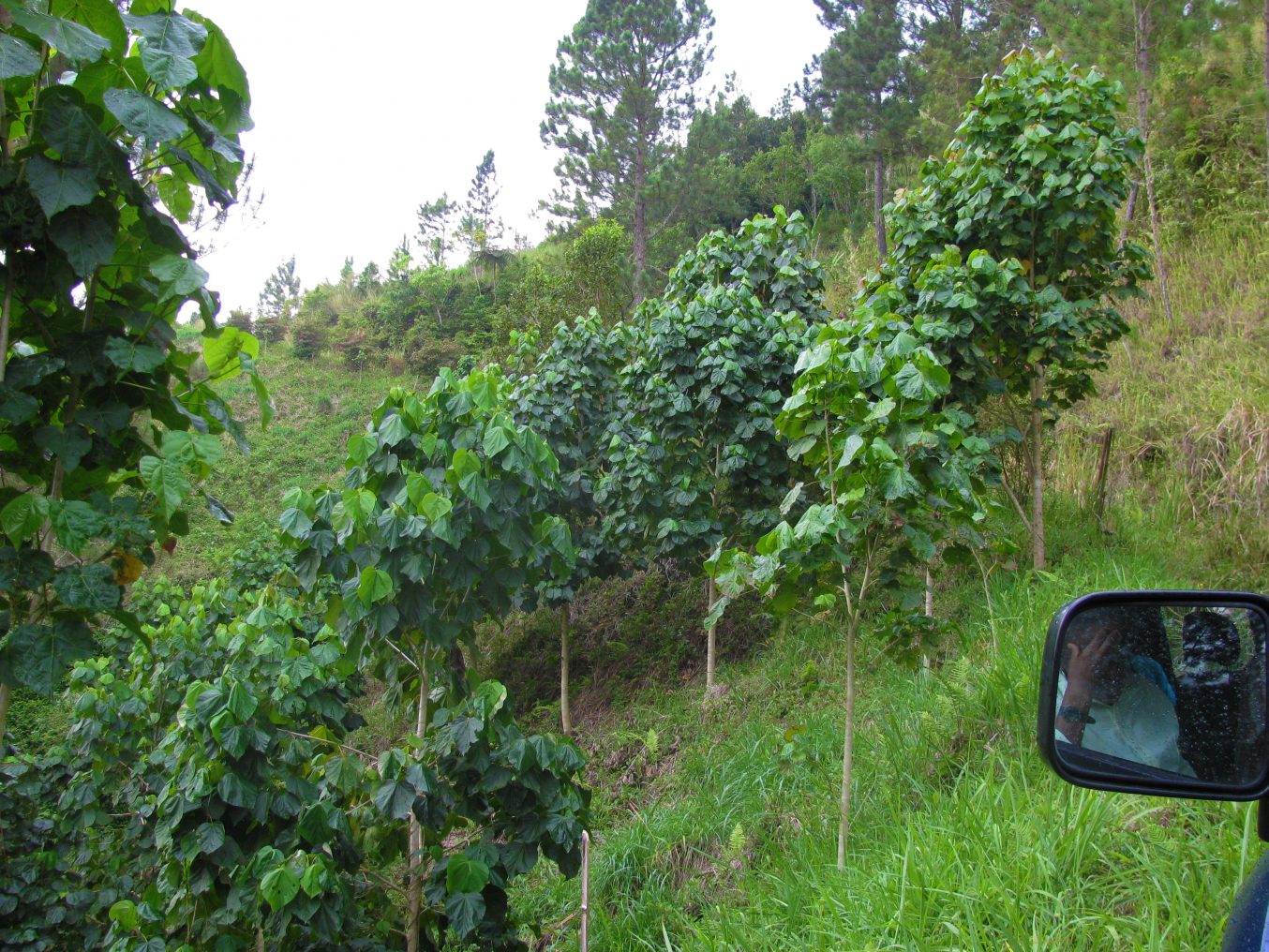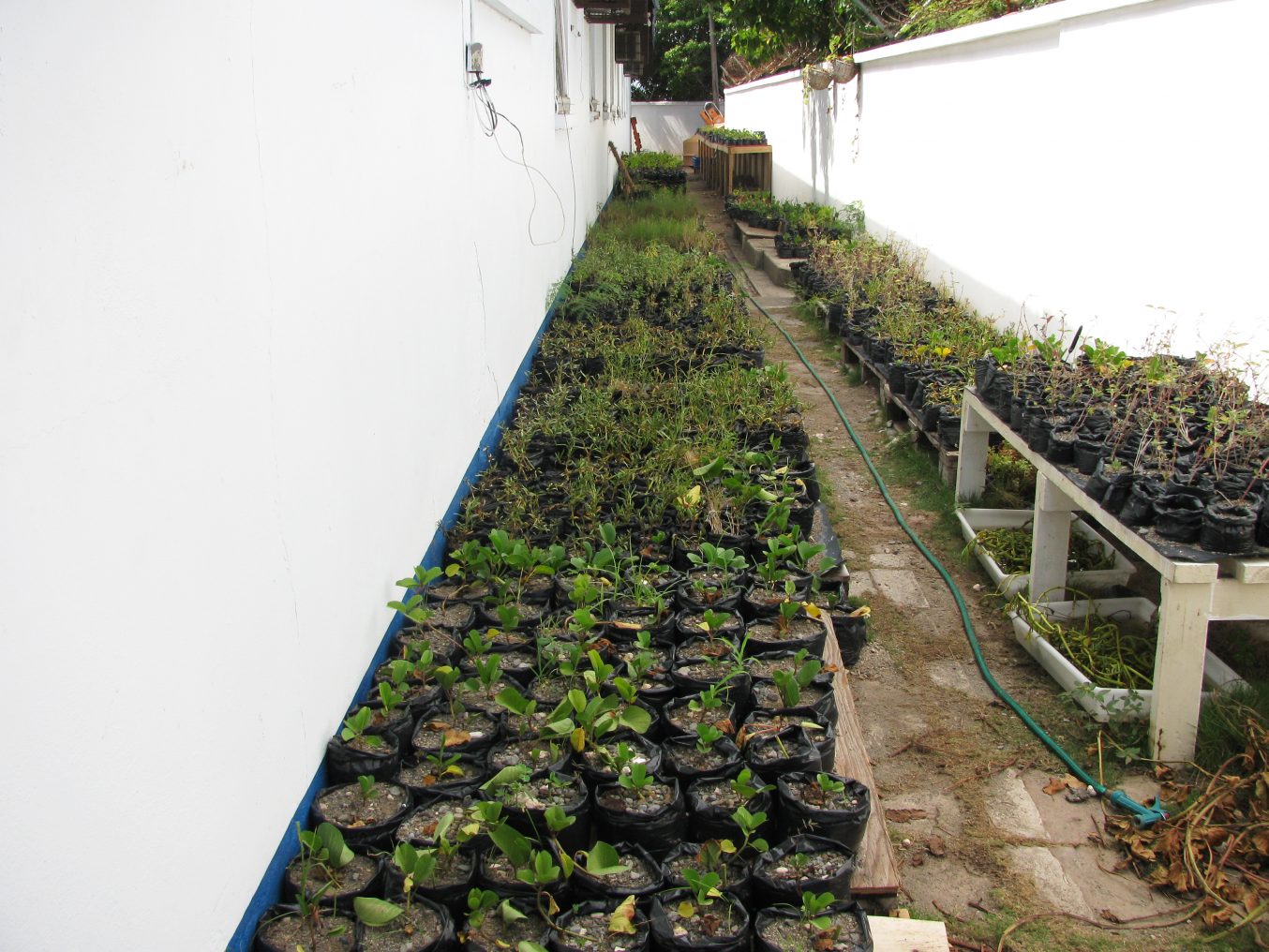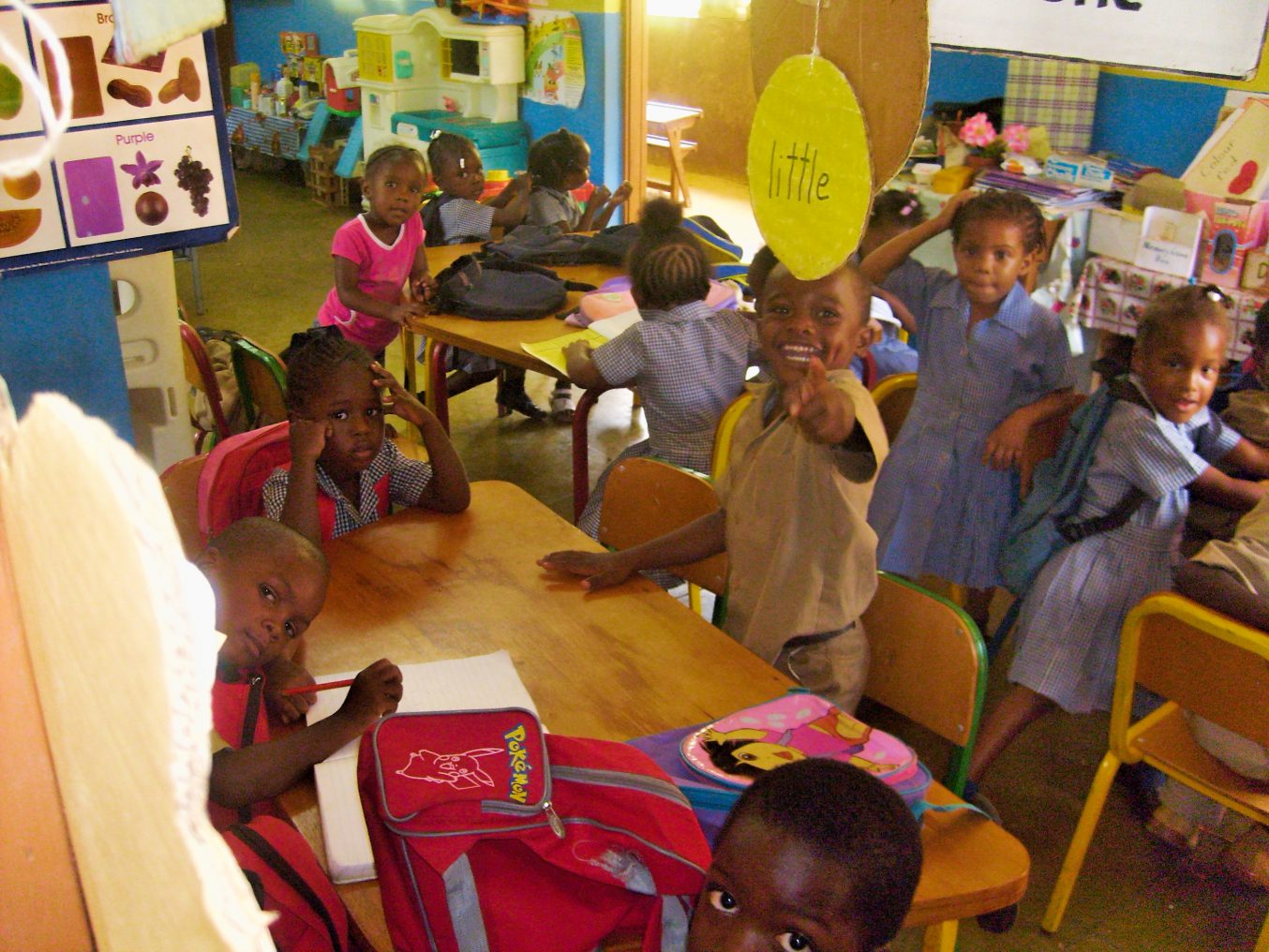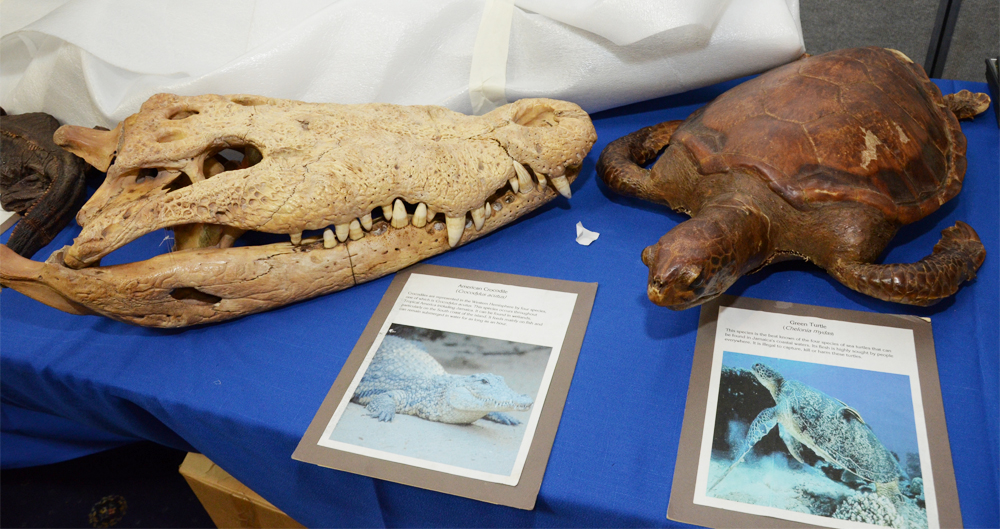Perhaps the most important event in the life of the EFJ during the year 2001/2002 was the conduct of the first external evaluation of the Foundation’s procedures for governance, its operations and programme achievements from inception to 2001 — a period of eight years. The evaluation was commissioned by the Governing Board of the Enterprise for the Americas Initiative, the entity with the responsibility to the Government of the United States of America for the operations of the ten environmental funds in Latin America and the Caribbean set up under that initiative.
The Secretariat of the Enterprise for the Americas Initiative was required to establish a schedule to conduct interviews of all ten funds, and when approached, the EFJ volunteered to be the first to be interviewed. This offer was made within the context of an organizational culture of regular internal reflection, and a conviction that an external evaluation could only serve to strengthen the organization and improve its productivity.
Conducted by The Nature Conservancy on behalf of the Enterprise for the Americas Initiative, the evaluation exercise lasted from 8th – 25th October 2001, when the evaluation team presented a summary of the main findings and recommendations to the Board of Directors and Senior Staff.
The main findings were positive particularly in the areas of corporate due diligence, governance, financial accountability and the projects supported. As with any evaluation, there are also valuable recommendations for improvement in all significant areas of operation. An action was started on some of the most critical recommendations as soon as the Board of Directors officially accepted the report. For the New Year an Action Programme Plan will be developed to guide the systematic attention to all recommendations.
In addition to the evaluation exercise the EFJ’s corporate management practice received another boost during the year, when, through the instrumentality of the Treasurer, we were assisted in a process to set clear and manageable strategies and objectives for the Foundation’s work for 2001-2002. A scheduled monthly meeting of the Secretariat’s Senior Management Team has served to ensure that concrete action is taken and closely monitored on all key deliverables.
At the programmatic level the implementation activities were started on the four national level projects in the proactive mode, following the design and development phase of the previous year. The main activities were:
- Re-planting of native trees in the upper Dunn’s River Watershed
- Upgrading of facilities for conservation, recreation and education in places of national significance and pride: the Hope Zoo, the Hope Gardens and the National Heroes Park.
By the end of the year (31 July 2001), the EFJ had also successfully completed the first year of the experimental collaboration with the Bernard Van Leer Foundation of Holland on the Kingston Inner-city Child Support Programme, the outcomes of which exceeded expectations in several areas. This not only provides a positive basis for continued collaboration with Bernard Van Leer, but also opens the possibilities of other types of mutually beneficial collaboration with other partners.
Finally, in addition to important management and programmatic activities the EFJ also made a significant administrative and literal move during 2001/2002. On 1 March 2002, the offices were relocated to new premises at 1B Norwood Avenue, Kingston 5, an investment, which allowed all members of staff to be housed together under one roof.
For the New Year the focus will be on responding to the challenges of the recommendations from the EAI evaluation, finding creative ways to expand the organization’s reach and impact through more streamlined activity in keeping with a redefined concept of sustainable development in Jamaica.
